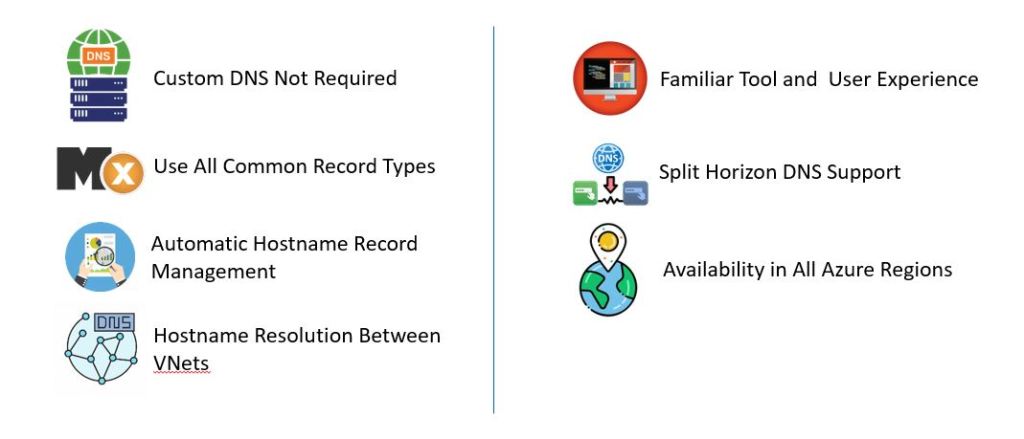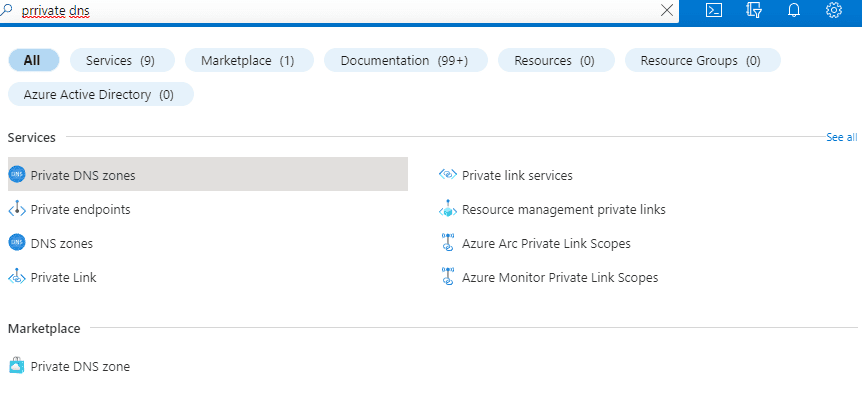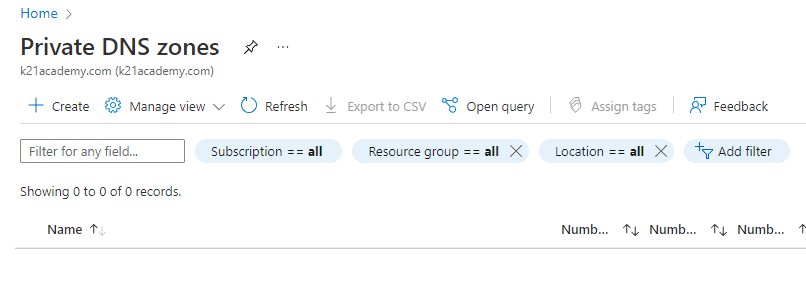In this blog we are going to cover Azure Private DNS, Its benefits, Capabilities, Configure the Azure DNS, and Creating DNS records.
Topics we’ll cover:
- Azure Private DNS
- Benefits of Azure Private DNS
- Capabilities
- Configure the Azure DNS
- Create DNS Record
What is Azure Private DNS?
Azure Private DNS provides a reliable and secure DNS service for your virtual network. Azure Private DNS manages and resolves domain names in the virtual network without the need to configure a custom DNS solution. By using private DNS zones, you can use your own custom domain name instead of the Azure-provided names during deployment.

Using a custom domain name helps you tailor your virtual network architecture to best suit your organization’s needs. It provides a naming resolution for virtual machines (VMs) within a virtual network and connected virtual networks. Additionally, you can configure zones names with a split-horizon view, which allows a private and a public DNS zone to share the name.
Benefits of Azure Private DNS
1. Removes the need for custom DNS solutions. Previously, many customers created custom DNS solutions to manage DNS zones in their virtual network. You can now manage DNS zones using the native Azure infrastructure, which removes the burden of creating and managing custom DNS solutions.
2. Automatic hostname record management. Along with hosting your custom DNS records, Azure automatically maintains hostname records for the VMs in the specified virtual networks. In this scenario, you can optimize the domain names you use without needing to create custom DNS solutions or modify applications.
3. Hostname resolution between virtual networks. Unlike Azure-provided hostnames, private DNS zones can be shared between virtual networks. This capability simplifies cross-network and service-discovery scenarios, such as virtual network peering.
4. Familiar tools and user experience. To reduce the learning curve, this service uses well-established Azure DNS tools (Azure portal, Azure PowerShell, Azure CLI, Azure Resource Manager templates, and the REST API).
5. Available in all Azure regions. The Azure DNS private zones feature is available in all Azure regions in the Azure public cloud.

Azure DNS Provides the Following Capabilities
- Automatic registration of virtual machines from a virtual network that’s linked to a private zone with auto-registration enabled. Virtual machines get registered to the private zone as A records pointing to their private IP addresses. When a virtual machine in a virtual network link with auto-registration enabled gets deleted, Azure DNS also automatically removes the corresponding DNS record from the linked private zone.
- Forward DNS resolution is supported across virtual networks that are linked to the private zone. For cross-virtual network DNS resolution, there’s no explicit dependency such that the virtual networks peer with each other. However, you might want to peer virtual networks for other scenarios (for example, HTTP traffic).
- Reverse DNS lookup is supported within the virtual-network scope. Reverse DNS lookup for a private IP associated with a private zone will return an FQDN that includes the host/record name and the zone name as the suffix.
Configure the Azure DNS
In this section, you will learn how to create an Azure Private DNS virtual using the Azure portal. A DNS zone contains the DNS entries for a domain. To start hosting your domain in Azure DNS, you create a DNS zone for that domain name.
1. In the Azure portal, search for Private DNS zones and select Private DNS Zone.

2. Click on +Create to create a new Private DNS zone.
3. Select the Resource Group and provide the name to DNS Zone. After that click on Review & create
Creating DNS Records
DNS entries or records for your domain inside the DNS zone. Create a new address record or ‘A’ record to resolve a hostname to an IPv4 address.
1. Go back to Portal > Private DNS zone > select +Record set to create a Recordset in Private DNS Zone.
2. Give the name APP10 and IP 10.0.0.5 which is the IP address of VM with Web Server Role configured previously.
- Name: The record name is the hostname that you want to resolve to the specified IP address.
- Type: Select A. ‘A’ records are the most common, but there are other record types for mail servers (‘MX’), IP v6 addresses (‘AAAA’), and so on.
- TTL: Type 1. Time-to-live of the DNS request specifies how long DNS servers and clients can cache a response.
- TTL Unit: Select Hours. This is the time unit for the TTL value.
- IP address: This value is the IP address the record name resolves to. In a real-world scenario, you would enter the public IP address for your web server.
![record-set]()
3. Browse using that name in Internet Explorer in VM (with Web Server role and within the same VNET) and Search =1_dms.com
NOTE: Here app10 is the recordset name created in step 2.
Next Task For You
Begin your journey towards becoming a Microsoft Azure Administrator [AZ-104] by joining our FREE Class. We strongly recommend gaining knowledge from AZ-104 in order to be an effective Azure Administrator. Our course covers the AZ 104 certification.
Click on the below image to register for the Free Class NOW!
The post What is Azure Private DNS? | Benefits | Capabilities | Configure the Azure DNS appeared first on Cloud Training Program.



















